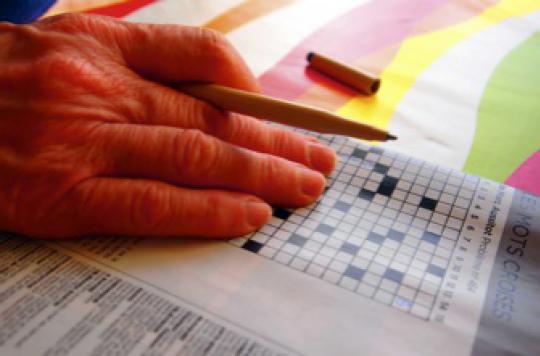Scientists sign a forum in which they denounce the “aggressive and false advertising” of games and brain stimulation exercises.

If you play “cut words” or “elephant memory” in the hope of preventing neurodegenerative diseases, you are wrong. This is in any case the opinion of some 70 professors in psychology, medicine and neurology, who sign ucommon forum published on the website of Stanford Center on Longevity.
Pernicious messages
“Consumers are made to believe that playing brain-stimulating games will make them smarter, more alert, more able to learn faster and better. The most pernicious of these messages is to claim, without any tangible scientific evidence, that these games can prevent Alzheimer’s disease, or reverse its effects, ”they write.
However, things are far from being that simple, according to them. “To date, we do not have sufficient evidence that playing brain games improves cognitive abilities.” All is said. American and European scientists thus denounce the strategy of the gaming industry, which hammers out “implicit or explicit” messages on the supposed virtues of brain stimulation games, in defiance of any scientific rigor.
In fact, in their marketing strategy, some companies do not hesitate to ensure that these games are “designed by scientists” … “These exaggerated and misleading claims exploit the anxiety of the elderly, who fear an imminent cognitive decline”, note authors.
Harmful advertising
This “aggressive advertising” would, in fact, have a truly detrimental effect. It would push consumers to change their behavior in one direction – gambling – by obscuring lifestyle habits that increase the risk of contracting Alzheimer’s disease. “The promise of a magic cure undermines the clarity of the best evidence available to date: cognitive health in the elderly reflects the long-term effects of a healthy, active lifestyle.”
Despite everything, the authors of the text do not deny the potentially beneficial effects of memory games and other brain sports. They are simply asking not to take the industry’s messages at face value. “We encourage further careful research and validation,” they conclude. But until then, to avoid Alzheimer’s, it is better to do a little walking every day than a crossword puzzle …
.














